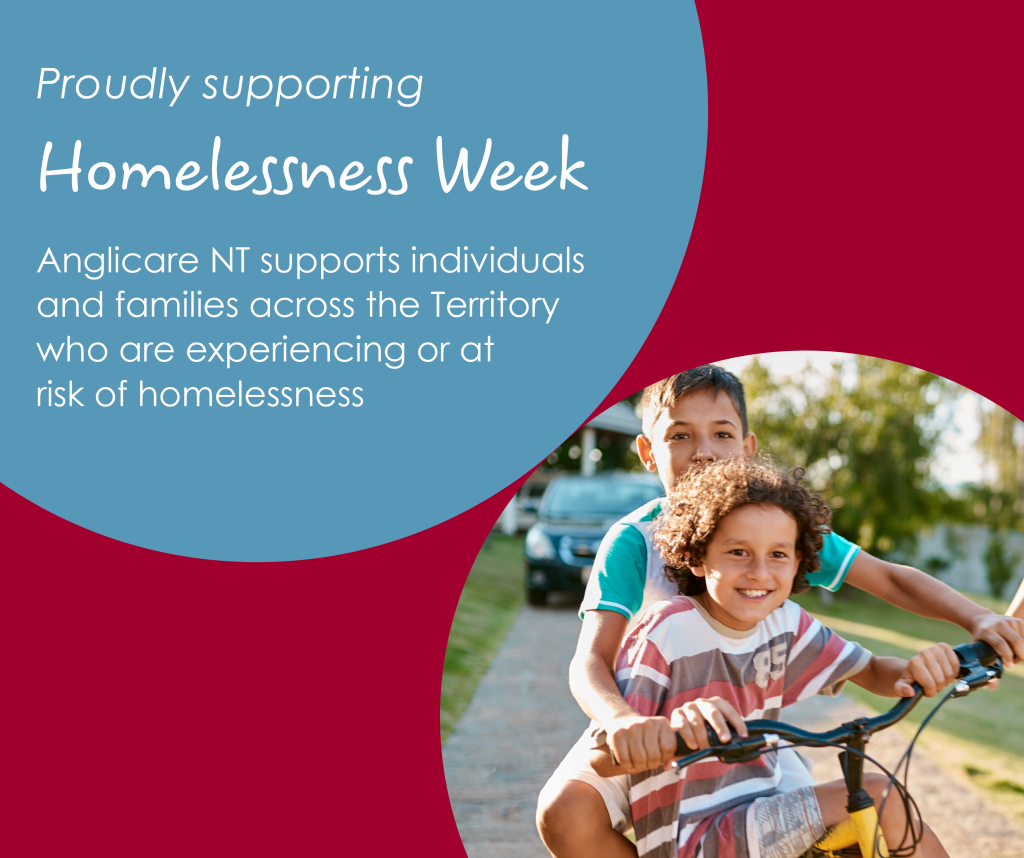Territorians need safe, affordable housing
Access to safe, adequate and affordable housing is a challenge across the Northern Territory. There is a shortfall of affordable rental accommodation, many people live in overcrowded conditions and we have the highest rate of youth homelessness in Australia.
Territorians become and stay homeless for many reasons including domestic and family violence, financial crisis and a lack of or sudden loss of employment. Relationship breakdowns, mental health issues, and alcohol and drug abuse can also affect people’s ability to cope and find a way out of homelessness.
Anglicare NT services help young people, adults and families establish stable home environments, maintain tenancies and access transitional accommodation as required.
During Homelessness Week and throughout the year, we continuously advocate for additional resources to improve access to suitable accommodation options and supports for Territorians who need them most.
The annual Rental Affordability Snapshot, released by Anglicare NT in April, found fewer private rentals were available and the cost of renting has increased. On the snapshot weekend, there were zero (0) rental properties suitable and affordable for singles, single parents or couples with children living on the JobSeeker payment.
With the private rental market failing so many people, government must invest in homes for people who need them most. Ending our affordable housing shortfall would be the most powerful way to tackle the rental crisis – and boost our regional economy.
The Australian Housing and Urban Research Institute shows that we currently have a shortfall of 6,700 social and affordable rentals across the Northern Territory. By 2036, that number is expected to grow to 14,500.
Following its success supporting people to maintain their accommodation in Darwin, the Housing Accommodation Support Initiative (HASI) has recently been extended to the Katherine region. The program supports people with a mental illness who live in public housing to maintain their tenancy, access psychosocial supports, develop life skills and enhance quality of life.
An external evaluation of HASI confirms the program is creating positive change for participants by improving stability, connections, security and physical health. People have been connected with services that address their needs, allowing them to live more independently and securely at home. Importantly, no participant has been evicted since the program commenced.

